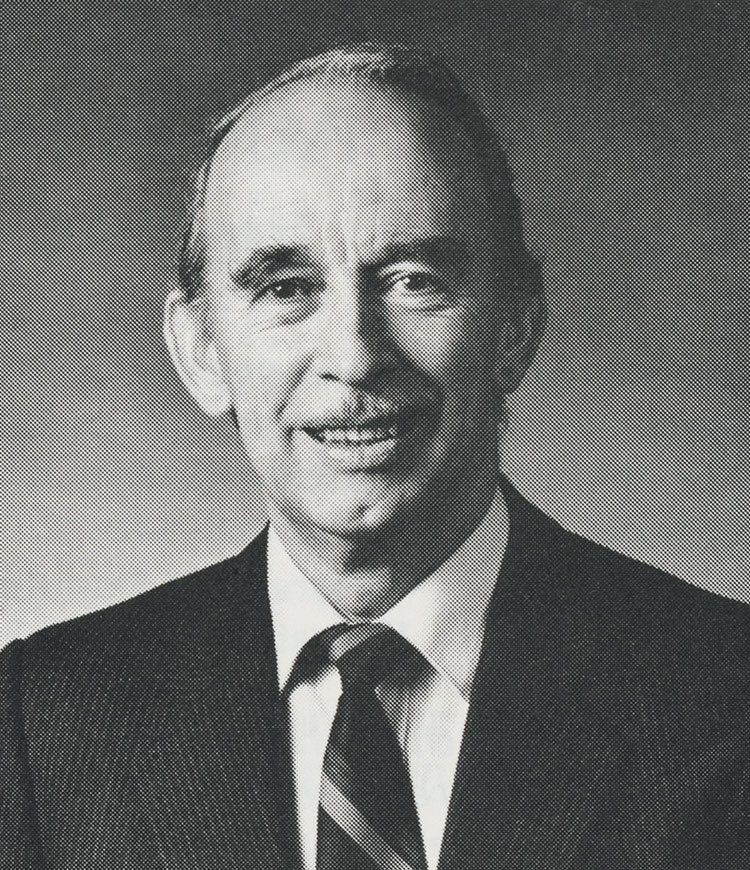A Renaissance Man
After Howard Johnston’s peaceful passing at the Shuswap Lake General Hospital on June 5, 2001 his wife of 45 years, Dale Shuko established an Endowment Fund in his memory with the Shuswap Community Foundation. Dale wanted this to be a discretionary fund where the Directors of the Foundation allocate the proceeds to areas of greatest need.
Howard a man of extraordinary intelligence, many gifts and a life of public service had suffered from dementia for ten years. His is a remarkable story.
Howard and his twin sister Lois were born June 13, 1928 in Deep Creek and were the second set of twins born to Andrew and Olga Johnston. The first set of twins, Benjamin and Richard became farmers at Deep Creek. But Howard chose a different path. The dinnertime discussions about farmers led Howard to join the Social Credit movement when he was 16. He attended A.L. Fortune in Enderby, graduated from Salmon Arm Secondary then entered Victoria Normal School. For one year in Enderby he had Leonid Ignatieff (uncle to Michael Ignatieff) as a teacher who encouraged him to pursue further education. Years later, Howard, who was teaching at SASS, recognized the same passion for politics in one of his own students and encouraged Cindy Derkaz to become involved in politics and community service.
Howard and Dale met in Monte Lake where they both taught school. Once Howard had his BA they married on August 15, 1956. Howard followed Mr. Ignatieff’s advice and continued his B.Ed. and M.Ed. at UBC. Here he was involved in several clubs, among them: Drama, University Singers, Fencing and the Social Credit Club. He also received an Academic Diploma from Institute of Education, University of London, U.K.
In 1965 Howard ran as a candidate for Social Credit in the Okanagan/Revelstoke Electoral District and was elected to the 27 th Canadian Parliament where he and five others held the balance of power in the Lester Pearson government. The Globe and Mail noted there were some articulate members — MacDonald, Turner, Schreyer (later Governor General), and Johnston. It was also noted that “at least two members frequented the Parliamentary Library: John Roberts and Howard Johnston.”
In the Shuswap Howard taught art, English and drama at SASS. He sang with the Shuswap Singers, was active in the Shuswap Theatre, in the Interior Provincial Exhibition (Armstrong, BC) and the Salmon Arm Fall Fair where he won many awards for his floral arrangements. He was a watercolour painter and a member of the Federation of Canadian Artists. His paintings were shown in various galleries in Canada and were also presented to Prime Ministers Nakasone and Kaifu of Japan by the Government of Canada.
Howard lectured in horticulture, served eight years on the Okanagan Symphony Board, was a gardener, a teacher and a poet. To his great delight he was inducted into the Hall of Fame at A.L.Fortune School in Enderby, not far from his Deep Creek birth. Howard was also remembered as one of the very first to build bridges, such as Mika-Nika, to foster contacts and relationships between the First Nations people and the rest of the Shuswap. The esteemed Secwepemc Elder Dr. Mary Thomas sang the “Hymn for the Departed” at Howards Celebration of Life.
Howard was an outstanding Member of Parliament, first as Social Credit, then as Progressive Conservative. A contribution both Howard and Dale are proud of is that it was Howard’s vote from the Opposition bench that enabled the Liberals to pass the Bill to eliminate Capital Punishment. It was noted that Howard’s speech on Capital Punishment was one of the finest speeches given. Two examples of comments from his colleagues attest to Howard’s contributions as an M.P.
“One of the most capable Members in Ottawa; a man of high principle, wit and well informed.”
Elmer MacKay, M.P. Central Nova
“…you have been that rare Member of Parliament who combines local representation and national interests for the good of the entire country.”
Doug Roche, M.P. Edmonton Strathcona
When Howard retired in 1979 members of every party lauded him. The following excerpt from a eulogy read at Howard’s memorial service exemplifies this:
“…It was only as our friendship grew that I came to know the depth and range of Howard Johnston. Of course, he performed his constituency and parliamentary duties meticulously. But he also had, and nourished, a profound interest in the working principles of society and democracy. Most strikingly, he saw the world with an artist’s eye. Where others of us might only see the ordinary, Howard saw beauty. Where others might be distracted by conflict or confusion, Howard sought
Rt. Hon. Joe Clark.
form and order…”
Howard Johnston was a gentleman, a Renaissance Man and indeed, a man ahead of his time. This sentiment is well illustrated by his conversation with HM the Queen when Dale and Howard attended the Hall of Honour for the Queen’s Jubilee in 1976.
The highlights of that exchange are in the box.
James Jerome, Speaker of the House, accompanied the Queen down the reception line to speak to Parliamentary Members. She stopped in front of Howard and Dale and said:
HM: “What do you think about television in the House of Commons, Mr. Johnston?”
HJ: “I was very much opposed to it, Your Majesty.”
HM: “Why was that?”
HJ: “I think it will do most of us a great disservice. Pandering to constituents will take precedence over the Parliament.”
HM: “Well, I hear it improved the dress code of the Members of Parliament.”
HJ: “I’m afraid, it will be the only good that will come out of it, Your Majesty.”
At this point Her Majesty tipped her head back and laughed heartily. Dale was standing beside Howard and thought “Oh dear, I hope her crown won’t fall off–it was such spontaneous laughter.” Then the Queen was hastily led away by the Speaker who did not pause again until they had moved about 15 feet down the line.


